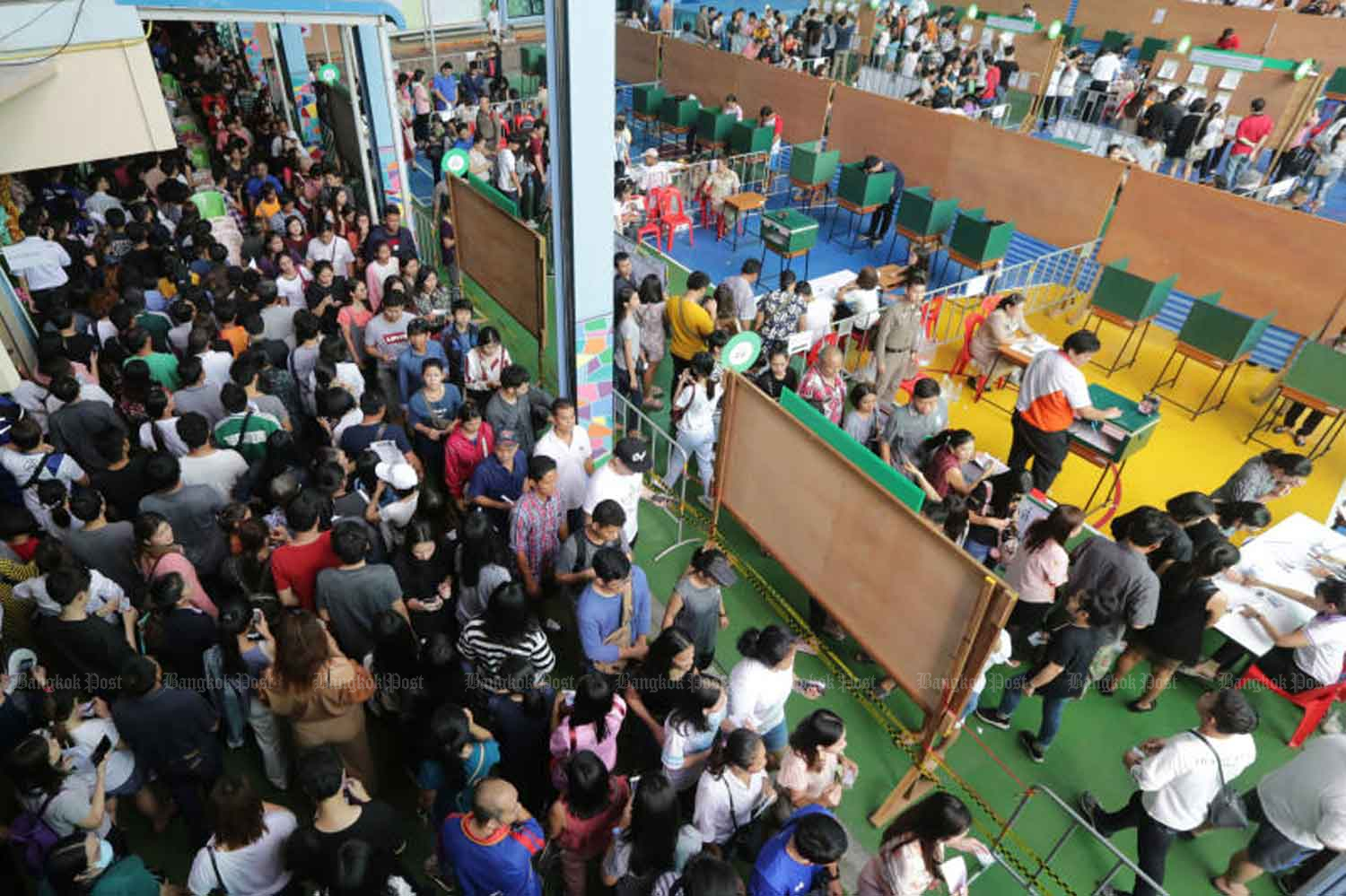
A Senate committee has proposed that voters be given 500 baht each in travel expenses in the hope it will encourage turnout and help combat vote-buying in the coming general election.
If the proposal materialises, about 20 billion baht will be needed for a turnout of 40 million eligible voters.
Critics have slammed the proposal, saying it violates the constitution.
The Senate on Monday looked at a report on how to ensure fair and fraud-free elections submitted by the committee on political development and public participation.
Senator Seree Suwanpanont, the committee's chairman, told the meeting that voting-buying is partly due to economic problems affecting people's livelihoods, while political culture and people who wield political clout in local areas also play a part.
The way elections are held does not encourage people to come out to vote, and the ensuing vote-buying is also a reflection of inefficiency in law enforcement, he said.
Mr Seree said that the report's suggestions "may affect some politicians, but it will help promote compliance with the law to ensure elections are free of fraud''.
Sub Lt Wongsayam Pengpanichpakdi, the committee's secretary, said another problem is that voters lack motivation, so the 500-baht travel stipend would also encourage participation.
"Often, voters accept money in exchange for their votes because of economic hardships.
"Therefore, the committee has suggested the Election Commission (EC) or relevant agencies pay 500 baht in travel expenses for voters each so they can go to the polls.
"The government has already handed out 200-500 baht per person each month as part of its economic stimulus measures. Paying travel expenses for voters to go to the polls will help people vote for decent politicians and prevent vote-buying.
"In the provinces, some voters have to travel a long distance to polling stations, and that can cost 80-100 baht," he said.
However, Jade Donavanik, a former adviser to the Constitution Drafting Committee, disagreed, saying the proposal violates the constitution, which stipulates that people are bound by duty to go to the polls.
"Such money should be paid as a reward for people who act as whistleblowers on poll fraud instead," he said.
Mr Jade also questioned where the money which would be used to fund the travel expenses would come from.
The EC has not earmarked any budget allocations for this purpose, he said, adding that if the government pays for the proposed travel expenses, this could be deemed to be a move to gain a political advantage or even an act of vote-buying in itself.
"The proposal is not possible without any legislation to support it," Mr Jade said.
"If the law is amended to allow such travel expense payments, it may help encourage some people to go to the polls. But if future governments cannot pay for their travel expenses, people will be reluctant to exercise their voting rights," he said.
Somsak Suriyamongkol, a former deputy secretary-general of the EC, said that a high turnout stemming from people being paid to go to the polls would not reflect true democracy.
He also said that the law on the election of MPs allows state agencies to lay on vehicles to take voters to polling stations but not pay out for their individual expenses.
"However, state agencies don't want any involvement because they may be accused of favouritism," Mr Somsak said.
